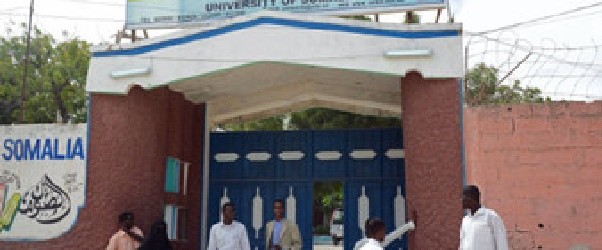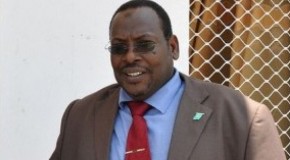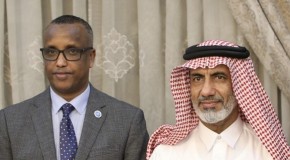The number of universities throughout Somalia is growing, but a lack of governmental oversight in an increasingly competitive higher education sector is cause for concern, researchers and education stakeholders say.
Somalia’s Go 2 School Initiative gets slow start Profiles of Somalia’s top presidential candidates National Education Conference opens in Mogadishu Somali government drafts bill to protect women’s rights Despite the country’s security challenges, more than 50,000 students attend nearly 50 higher education institutions of various sizes and capacities throughout Somalia including Puntland and Somaliland, according to a recent study produced by the Heritage Institute for Policy Studies (HIPS).
The August 2013 report, titled “The State of Higher Education in Somalia: Privatisation, rapid growth, and the need for regulation”, says that as many as 34 of 44 surveyed universities were established between the years 2004 and 2012. Of those 44 universities, only a handful offer post-graduate programmes.
“The exponential growth of the higher education sector, especially given the prolonged periods of insecurity experienced in parts of the country, challenges conventional wisdom that social and economic development ceases in the absence of a central government,” the reports says. “The absence of a central government and strong local authorities in Somalia has enabled and encouraged the privatisation of the higher education sector.”
But the report warns that “in the absence of regulation by governing authorities in all three regions and the low capacity of teaching staff, the quality of education has suffered considerably”.
Gains and risks
The pace at which higher learning institutions are expanding throughout Somalia is amazing, said Timothy Kiambi Maburi, a Kenyan educational consultant who previously worked at Gollis University in Hargeisa and is now the director of studies at Savannah University in Mogadishu.
“The country has been without a central government for over 20 years due to the on-going civil war, but higher education in Somalia has been functioning because of the strong role played by individuals, local communities and non-governmental organisations,” he said.
However, because of a lack of a functioning government in the past, the growth in the country’s higher education sector has brought with it some risks, Maburi told Sabahi.
Instead of being entrusted to educational professionals, the higher education sector has been taken over by business people interested in making a profit, he said.
Some of the universities were established by members of the diaspora community, religious non-governmental organisations or other private entities, according to the HIPS report. In addition, of the reported 2,501 lecturers, 39% have bachelor’s degrees, 50% have master’s degrees and the remaining 11% were reported to have PhDs. The report does not clarify if the degrees are from accredited institutions.
“They have reduced [university] expenses by employing staff who are not qualified in the subjects they are teaching, and this danger can only be overcome when the government fulfils its role,” Maburi said.
Dr. Isse Mohamud Halane, who used to teach veterinary sciences and medicine at state-owned Somali National University before the civil war and now lectures at some of Mogadishu’s private colleges, said there was a great disparity between the rate at which universities are growing in Mogadishu and the quality of their courses and instruction.
To improve the quality of higher education, Maburi said the government should establish more state-run universities, and adopt a law to regulate universities and set standards for instruction.
In fact, on November 14th Somalia’s cabinet unanimously backed a plan to renovate and re-open Somali National University, a project estimated to cost $3.6 million.
Students grade Somali universities
Despite the increasing educational opportunities in the country, Somali students say they are not impressed with the quality of higher educational programmes available to them.
Ismail Samatar, a third-year journalism student at Mogadishu University, said there was a “deficit” in his education. Some of his instructors lacked teaching skills or only had an undergraduate degree, he said.
For his part, Abdi Mohamed Ahmed, a fourth-year medical student at Benadir University, said that he and his classmates were getting an inferior education compared with medical students who attended universities abroad.
“Medical students around the world have teaching hospitals where they can practice, they gain their experience in the university hospital starting their first year, but we do not have that opportunity,” he said.
Responding to concerns about the lack of regulation, Mohamed Abdulkadir Nur, head of the education department in the Ministry of Development and Social Affairs, said the government was planning to pass a law in December or January for managing the higher education system.
“We are preparing the laws, educational policy and the curriculum that will be used in the country’s universities,” Nur told Sabahi.



















Comments are closed.